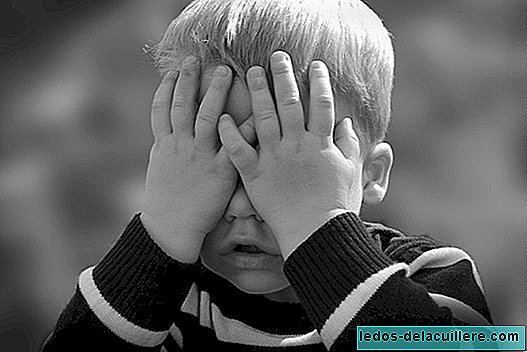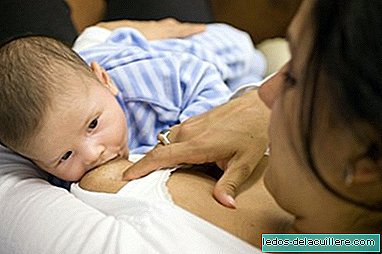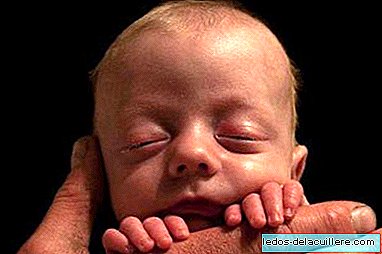Psoriasis is a inflammatory disease of the immune system It can affect the skin, nails and joints. It is a chronic disease that occurs in outbreaks and affects 2.3% of the population, especially in adulthood.
But nevertheless, one third of those affected by psoriasis are children and adolescents whose quality of life can be seriously affected by this disease, which not only generates physical problems but can also cause insecurity, fear and other emotional disorders. Experts insist on the importance of an early diagnosis for its correct treatment.
What is psoriasis and what are its symptoms?
As we said at the beginning, psoriasis is a chronic and inflammatory disease of an autoimmune nature that affects the skin, nails and joints. Today there is no cure, but treatments that help control outbreaks and improve the quality of life of patients.
Although it is not an inherited disease, it is there is a genetic predisposition to develop it and one third of those affected have direct relatives suffering from psoriasis. But in addition to the predisposition a series of environmental triggers that will make the disease appear at any given time.
These factors are varied and range from viral or bacterial infections, to stress, cold and seasonal changes, certain medications or trauma that trigger psoriasis lesions on the affected skin.
Skin lesions are red and bulky, and are covered with whitish and shiny scales that come off easily. These lesions can itch, hurt and sometimes crack and bleed.
In children and adolescents, the most common forms of disease presentation are:
Plaque psoriasis, which are fine and pink lesions of variable size.
Psoriasis in drops, which are very small and numerous lesions that are distributed throughout the entire body. In children and adolescents it usually appears after an infection with streptococci (bacteria), usually a pharynx-tonsillitis.
As in all diseases, a Early diagnosis will help to put an effective treatment, whose objective will be to make lesions disappear for as long as possible and improve the child's quality of life. There are various treatments to keep the disease at bay, but the doctor will assess the most appropriate for each specific case, depending on the severity and age of the child.

It's important to put attention on Psoriasis can affect the emotional well-being of the patient, and in this sense, childhood and especially adolescence can be stages of great vulnerability.
The skin is what separates us from the world and what everyone sees, so the lesions of this disease can cause shame, fear of social rejection and insecurity. Therefore, supporting the child from an emotional point of view is essential to cope with psoriasis.
Tips to cope with the disease
Before a diagnosis of psioriasis, the first thing parents should do is get detailed information about the disease, and ask the doctor any questions that may arise. In this way, it will be easier to understand what our child is going through, and talk about it with our surroundings.
Once we have understood the disease, we must explain it to the child, without lying to you at any time and using words and expressions according to your age and understanding, so that you can understand what happens to you and know how to live with your disease without fear.
A good resource when talking to children, especially if these are small, is to rely on stories, stories or comics, which are a great help when it comes to stigmatizing the disease and increasing self-esteem.
Involve the child in the use of creams and treatments, and introduce it into your daily routine as a habit of hygiene, such as brushing your teeth or showering.
At the beginning, or at some time of his illness, the child may feel ashamed that others see him that way, so it is essential to improve his self-esteem and, if necessary, turn to a specialized psychologist to help us focus on this issue.
It is also important that emotionally the child's family nucleus is also strong, to be able to support you when you need it.
If parents consider it, it can also be a great help for the child give a talk at school about psoriasis, in order to inform and raise awareness among classmates and teachers.
Maintain healthy lifestyle habits, exercise regularly, follow a balanced diet and avoid stress and anxiety.
Data to consider

Psoriasis It is not an infectious or contagious disease.
After the bath, you have to dry the skin very well but without rubbing, and then apply moisturizer.
The Seasonal changes usually cause alterations in patients, although not everyone reacts in the same way. In any case, it is very important to use sunscreen creams both in winter and summer, wear comfortable and breathable clothing and limit the time the child spends in the water, especially in swimming pools and the sea.
Taking care of our children's food is something we should always do, but in this case it is especially important to increase the intake of fruits and vegetables, reduce the consumption of saturated fats and avoid the consumption of trans fats and processed foods.
Infections such as otitis, tonsillitis, influenza ... can trigger an outbreak of psoriasis. We know that it is difficult to prevent the spread of these infectious diseases in childhood, but we must try to prevent them by taking appropriate measures.
If your child is diagnosed with psoriasis and It is the first time you have contact with this disease, you may need support and professional accompaniment and other people who are living the same as you. In this sense, associations such as Psoriasis Action can be of great help in understanding and addressing the course of this disease.
IStock Photos
Psoriasis Action Pathway - Association of Psoriasis, Psoriasic Arthritis and Family Patients












